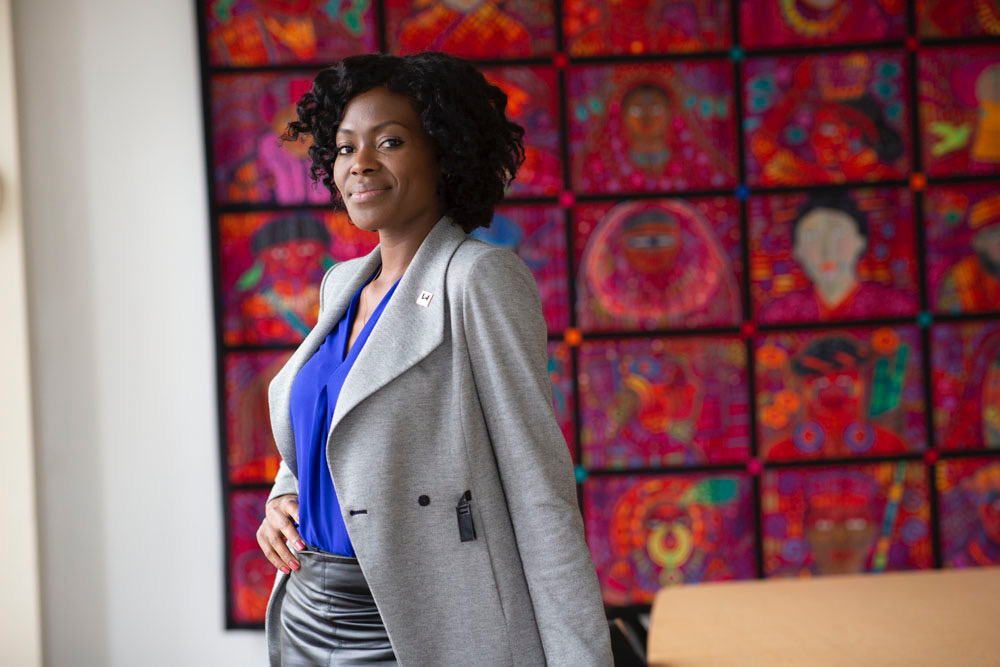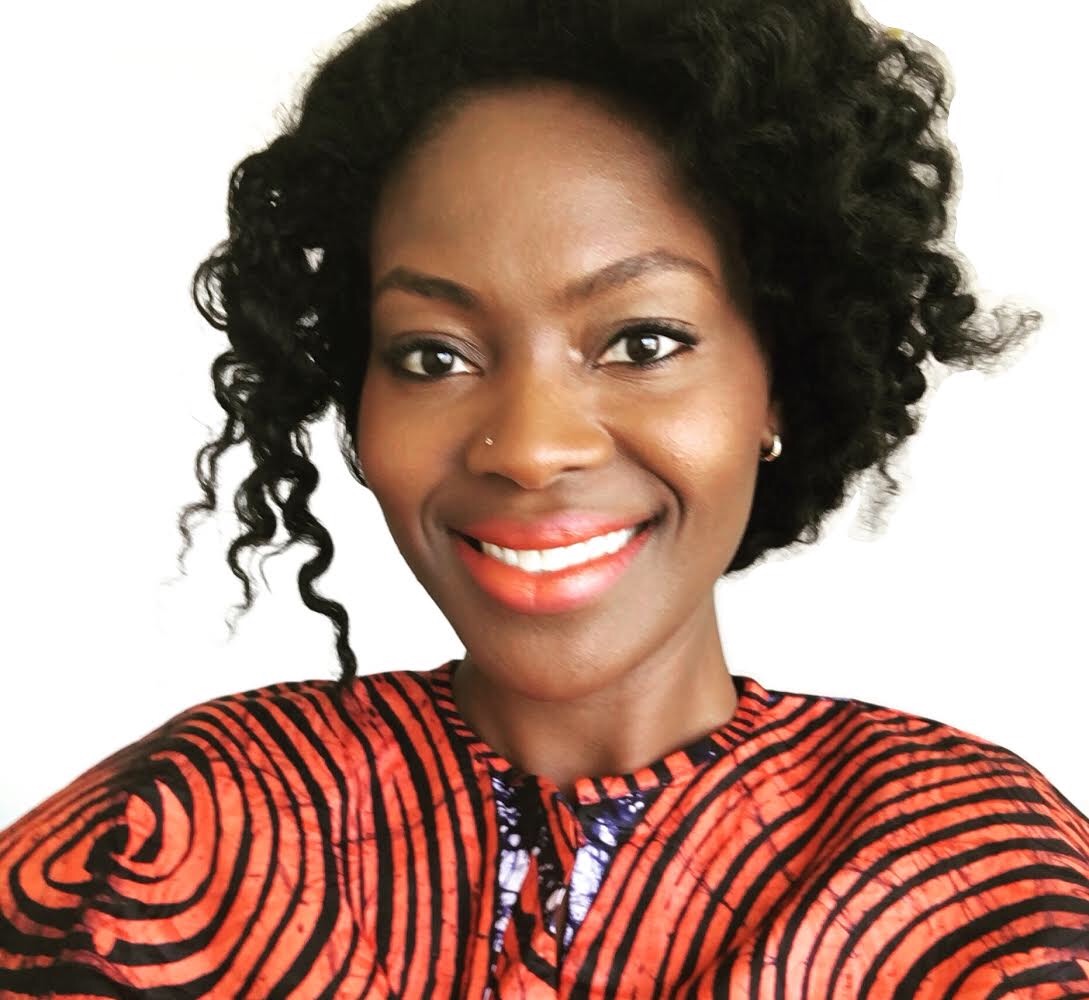
Lolade Aliyu Siyonbola studies the links between identity, assimilation and the contribution of second-generation Nigerians to their host country and to development in Africa.
If people have mastered a local language and have a network in place their experience when they travel back will be richer and they will be more likely to return or spend more time there.
Lolade Aliyu Siyonbola
Lolade Aliyu Siyonbola wants to understand how the identification choices of Nigerian second-generation immigrants influence how well they assimilate, their contributions to their host countries and the role of the Nigerian diaspora in Nigeria’s development. As a Nigerian who spent much of her childhood in the US, it is something she feels personally connected to and her interest grew out of her own desire to reconnect with Nigeria through language.
For Lolade, language and culture are the foundation for a deeper engagement with the continent. She set up her own Yoruba classes several years ago after looking for someone to teach her. “It is my language, but I had forgotten it in the US,” she says. “There are many Nigerians in the diaspora who are in a similar position, realising what a loss it is not to know their own language and not to be able to pass it on to their children. It had been drilled into them that their language is not valuable. When I was at school in the UK as a young child we had to write a sentence in our languages. I wrote a sentence in Yoruba and my teacher seemed very unimpressed. I thought she was saying my language was not valuable so I decided not to speak Yoruba any more.”
The classes evolved into a cultural institute and the experience of running that has driven Lolade’s research interests in diaspora engagement and reconnection. For her master’s at Yale, which she just finished, she was interested in studying how Nigerian immigrants in the West and in Asia chose to identify, what they brought to their countries and whether they chose to reconnect with their African roots. “I wanted to document the cost of migration for the individual and their country and the gain for the country they moved to. My ultimate goal is to encourage people to return to give back to their country through education and other resources," she says.
Lolade studied Nigerian communities in Tokyo, Mumbai and New York. “I am interested in the experience of the black immigrant globally,” she says. She found that in New York most first and second generation Nigerian immigrants continued to identify with Nigeria because of the cultural differences between black Americans and Nigerian immigrants. However, there was some assimilation of professional Nigerians into the black middle class. In India and Japan, however, there is no black middle class to assimilate into. In Japan there was more of a sense of rejection and alienation, with Nigerians having to pretend to be African American to move up the social ladder. Opportunities to advance were limited, but Nigerians felt safer than in the US or India. Most first-generation Nigerian immigrants leave India immediately after their studies due to the violence, says Lolade. Those of the second generation tend to feel more welcome in Nigeria than in India.
For her PhD in Sociology, which she begins in the autumn, Lolade [2019] will extend her research and look at the immigrant experience in London and New York in order to understand assimilation trajectories in the second generation: how they identify culturally, who they are marrying, where they are settling, what cultural capital they are producing and how this affects their links with Africa and their interest in giving back.
Childhood
Lolade was born in Lagos and lived there until she was five. She then moved to the UK to live with her uncle while her mother completed a master’s she was doing in the US. After two years, Lolade moved to Columbia, Missouri to join her mother and attended local public schools in the US. As a child, she loved to read and write and always thought she would be a writer. She was quite academic and her parents encouraged her studies. She was interested in world literature, social studies and history. “I would go to the local library and read books about other places. It was my way of travelling,” says Lolade.
Lolade excelled in debate competitions in high school and decided she wanted to be a lawyer. When she left school she thought about studying political science and then going to law school, but her parents persuaded her that she needed a back-up plan. So she agreed to do an undergraduate degree in computer science at the University of Missouri, where her mother had studied. Initially she hated the course, but she wanted to graduate quickly and move to New York so she stuck it out. Disillusioned with the US legal system by the end of the course, her interest in doing law waned. She moved to New York and started working in the tech industry as a network engineer in the financial sector. It was fulfilling for a short time, but Lolade found herself doing 70-hour weeks and feeling burnt out. She left her job and tried to start her own company selling t-shirts with educational messages about Africa, but she had little business experience. It was at this time that she started organising Yoruba classes.
Lolade ran the classes with a colleague initially, while working at an education consultancy, tutoring disadvantaged children with learning difficulties. She enjoyed the work, but needed to make a better living so she returned to the tech world and worked as a web developer for the City University of New York. She then worked as a project manager on mobile and web development apps for Fortune 500 companies, but again found the work unfulfilling. After getting married in 2008, Lolade and her husband created the Yoruba Cultural Institute which provided structured language classes. The Institute creates its own materials and offers group and individual sessions.
In 2013, the Institute organised its first film project, the Nollywood Diaspora Film Series, which brought together high quality Nigerian films and provided a forum for dialogue about the role of film in social change. Lolade became more passionate about helping the Nigerian diaspora to reconnect with their roots in a meaningful way and she felt language and culture were vital channels for this.
She decided she wanted to study the Nigerian diaspora in a more strategic way because she thought there were not enough people who understood the issue. “Discourse on migration often focuses on the shortcomings of immigrants. I wanted to turn that narrative on its head and study how much immigrants lose in being estranged from their country and family over generations and why they are forced to migrate in the first place. Most American research on immigrants focuses on those from South America, Asia and Europe. There is a huge gap in the study of black immigrants. I also wanted to understand the role of indigenous language, film and fashion in their assimilation and identification processes.”
So Lolade applied to do her master’s in African Studies at Yale. She began her course in 2017. During her time at Yale, Lolade continued to maintain the Yoruba Cultural Institute’s online offerings and was heavily involved in student advocacy through her work with the Yale African Graduate & Professional Students organisation and the Afro-American Cultural Centre. Over the summer she will participate in a Yale fellowship for social entrepreneurs through which she will begin to lay the foundation for NOIR Labs, a non-profit that will incorporate her previous film and language projects into a platform to empower the African Diaspora to support development on the continent. This will include a travelling film festival, as well as a language-learning platform which scales the Yoruba classes to include other African languages such as Zulu and Amharic. “I want to make learning African languages a part of people’s daily lives and for the platform to be highly interactive and engaging so people can ask questions at any time or have chats with other students and with their teachers based in Africa,” says Lolade.
“The aim is to build a community of like-minded people and to ensure those who visit Africa have local support for the integration process. If people have mastered a local language and have a network in place their experience when they travel back will be richer and they will be more likely to return or spend more time there. Knowing a language makes you feel less of an outsider.”
*Picture credit: Matthias Reichwald for Harambeans.

Ololade Aliyu
- Alumni
- Nigeria
- 2019 PhD Sociology
- Wolfson College
I became passionate about cultural displacement among African immigrants while an undergraduate in Computer Science at the University of Missouri. I subsequently moved to New York where I created cultural programming for the African Diaspora while working as a technologist. I decided then to pursue full-time this passion to serve the culturally displaced, and I enrolled in a Master’s in African Studies at Yale. There, I researched Nigerian immigrant identity in New York, Tokyo and Mumbai under the tutelage of renowned Sociologist, Dr. Elijah Anderson. I seek to build upon this work through my PhD at Cambridge, where I will continue to investigate the assimilation trajectories of second-generation Nigerian immigrants, one of the most educated immigrant groups in the US and UK. My research will measure how their cultural identification patterns influence their assimilation into their host societies and/or Nigeria, particularly through the creation of Black cultural capital. With this research, I hope to ultimately leverage the the talents of the highly-educated, resource-rich Diaspora to help increase access to innovative technical and creative education in Nigeria, particularly for the girl child, who is much less likely to receive an education than her male counterpart.
Previous Education
Yale University African Studies (Sociology) 2019
University of Missouri System Computer Science 2004












